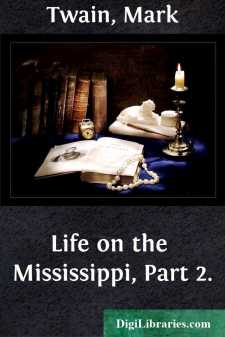Biography & Autobiography
- Adventurers & Explorers 15
- Artists, Architects, Photographers 16
- Business 2
- Composers & Musicians 14
- Criminals & Outlaws 5
- Editors, Journalists, Publishers 6
- Educators 1
- Entertainment & Performing Arts 3
- General 73
- Health, Exercise & Fitness 1
- Historians 3
- Historical 83
- Law Enforcement 1
- Lawyers & Judges 3
- Literary 147
- Medical 7
- Military 48
- Naturalists, Gardeners, Environmentalists 8
- Personal Memoirs & Diaries 226
- Philosophers 3
- Political 9
- Presidents & Heads of State 38
- Religious 38
- Rich & Famous 27
- Scientists 13
- Women 31
Biography & Autobiography Books
Sort by:
Some of Arnold's biographers have declared that he was a very vicious boy, and have chiefly illustrated this fact by painting him as a ruthless robber of birds'-nests. But a great many boys who began life by robbing birds'-nests have ended it much more creditably. The astonishing and interesting element in Benedict Arnold's career was what one might term the anomaly and incongruity...
more...
CHAPTER I. The Guernsey family of BROCK is probably of English origin, but we have been unable to ascertain the period of its first establishment in the island. The parochial register of St. Peter-Port extends only to the year 1563, soon after which time it contains the name of Philip Brock. By "Robson's Armorial Bearings of the Nobility and Gentry of Great Britain and Ireland," eight...
more...
I. CHILDHOOD AND YOUTH It has occurred to me that some reminiscences of a long life would be of interest to my family and friends. My memory goes back for more than eighty years. I recall distinctly when about five years old my mother took me to the school of Mrs. Westbrook, wife of the well-known pastor of the Dutch Reformed church, who had a school in her house, within a few doors. The lady was a...
more...
by:
Unknown
THE STORY OF BURNT NJAL 1. OF FIDDLE MORD There was a man named Mord whose surname was Fiddle; he was the son of Sigvat the Red, and he dwelt at the "Vale" in the Rangrivervales. He was a mighty chief, and a great taker up of suits, and so great a lawyer that no judgments were thought lawful unless he had a hand in them. He had an only daughter, named Unna. She was a fair, courteous, and gifted...
more...
by:
Mark Twain
Chapter 6 A Cub-pilot's Experience WHAT with lying on the rocks four days at Louisville, and some other delays, the poor old 'Paul Jones' fooled away about two weeks in making the voyage from Cincinnati to New Orleans. This gave me a chance to get acquainted with one of the pilots, and he taught me how to steer the boat, and thus made the fascination of river life more potent than ever...
more...
INTRODUCTION It is perhaps due to a chance conversation, held some seventeen years ago in New York, that this Diary of the Civil War was saved from destruction. A Philadelphian had been talking with my mother of North and South, and had alluded to the engagement between the Essex and the Arkansas, on the Mississippi, as a brilliant victory for the Federal navy. My mother protested, at once; said that...
more...
by:
Walter Scott
NOVEMBER. [Edinburgh,] November 20, 1825.—I have all my life regretted that I did not keep a regular Journal. I have myself lost recollection of much that was interesting, and I have deprived my family and the public of some curious information, by not carrying this resolution into effect. I have bethought me, on seeing lately some volumes of Byron's notes, that he probably had hit upon the...
more...
by:
Mynors Bright
July 1st. To the office, and there we sat till past noon, and then Captain Cuttance and I by water to Deptford, where the Royal James (in which my Lord went out the last voyage, though [he] came back in the Charles) was paying off by Sir W. Batten and Sir W. Pen. So to dinner, where I had Mr. Sheply to dine with us, and from thence I sent to my Lord to know whether she should be a first rate, as the...
more...
by:
John Morley
THE LIFE OF GEORGE ELIOT. The illustrious woman who is the subject of these volumes makes a remark to her publisher which is at least as relevant now as it was then. Can nothing be done, she asks, by dispassionate criticism towards the reform of our national habits in the matter of literary biography? 'Is it anything short of odious that as soon as a man is dead his desk should be raked, and every...
more...
ORATION OF HON. JOHN A. J. CRESWELL. My Countrymen: On the 22d day of February, 1732, God gave to the world the highest type of humanity, in the person of George Washington. Combining within himself the better qualities of the soldier, sage, statesman, and patriot, alike brave, wise, discreet, and incorruptible, the common consent of mankind has awarded him the incomparable title of Father of his...
more...











